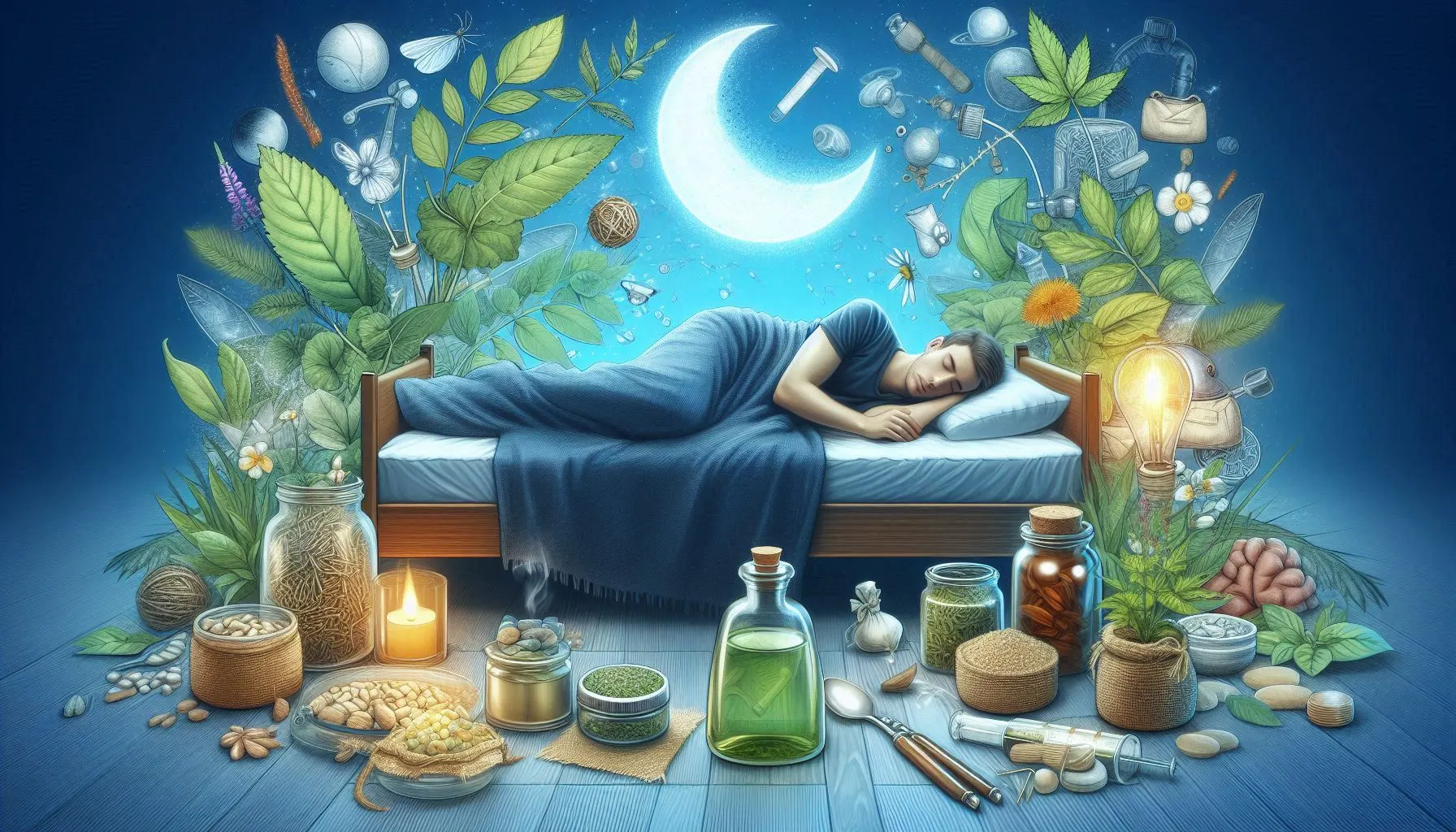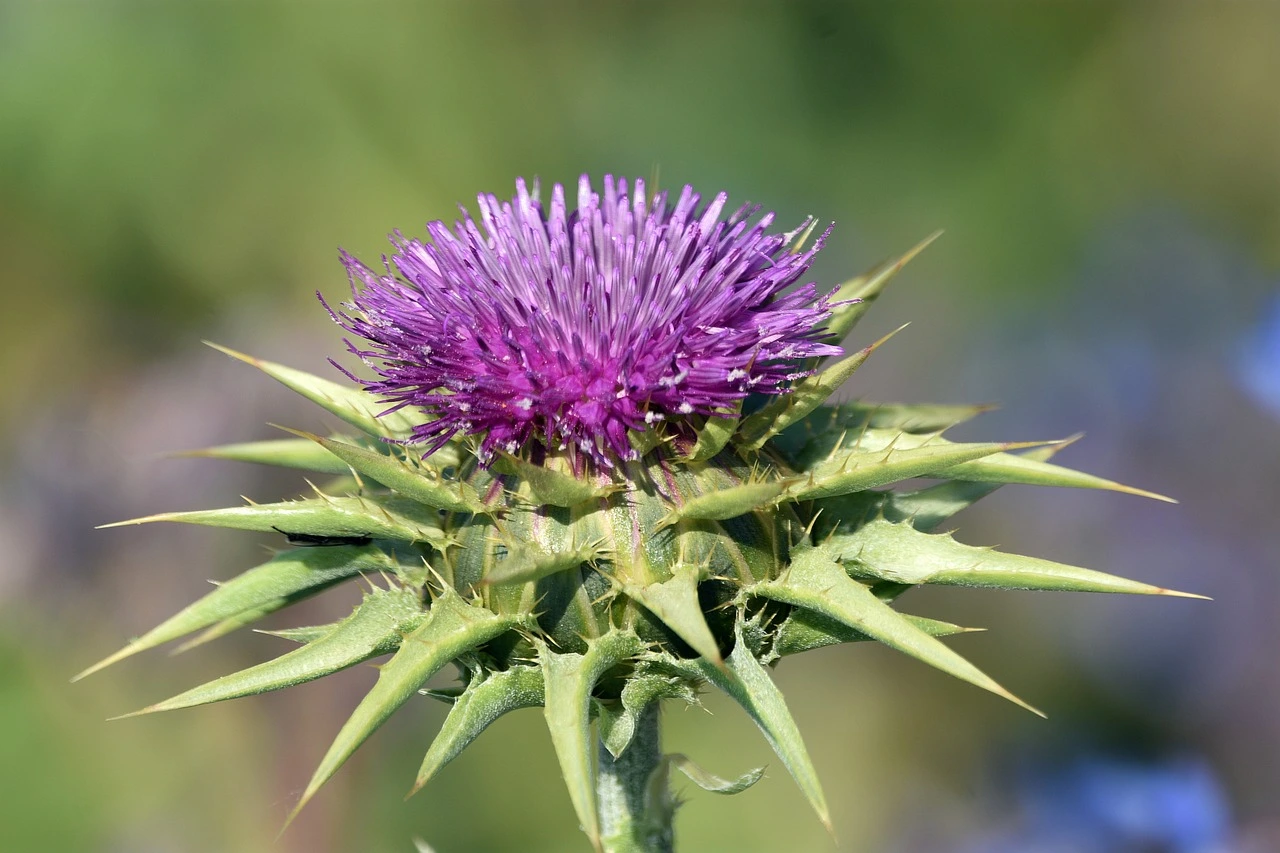Note: This blog post on Natural Sleep Remedies is for informational purposes only. For medical advice or diagnosis, consult a professional.
Insomnia is a common sleep disorder that can make it difficult to fall asleep, stay asleep, or both. There are many different causes of insomnia, including stress, anxiety, depression, and certain medical conditions. If you’re struggling with insomnia, there are a number of things you can do to improve your sleep. In addition to good sleep hygiene practices, such as avoiding caffeine and alcohol before bed, maintaining a regular sleep schedule, and creating a relaxing bedtime routine, you may also want to consider using herbal remedies.
While modern medicine offers pharmacological solutions, these often come with side effects and the risk of dependency. Scientific research increasingly validates the efficacy of alternative remedies, particularly herbal solutions, in managing insomnia naturally. Herbs like valerian root, chamomile, and passionflower are backed by studies demonstrating their ability to enhance relaxation and improve sleep quality.
Historically, these herbs have been known for their calming properties—valerian root was used in ancient Greece and Rome as a remedy for restlessness, while chamomile has been a cornerstone of European folk medicine for centuries. Today, a blend of ancient wisdom and scientific evidence highlights the potential of herbs to restore restful sleep safely and effectively.
Here we list 10 proven herbs as a potential as natural sleep remedies:
1. Valerian Root
- Benefits: Reduces the time it takes to fall asleep and improves sleep quality. Contains compounds like valerenic acid that have a sedative effect on the brain.
- Why Take It: Ideal for those experiencing sleep difficulties due to stress or anxiety. Often used as a natural alternative to sleeping pills.
- Contraindications: May cause dizziness, headaches, or stomach upset.
- Who Should Avoid It: Pregnant or breastfeeding women, children, and individuals taking sedatives or anti-anxiety medications should avoid valerian root.
2. Chamomile
- Benefits: Promotes relaxation, reduces anxiety, and encourages restful sleep through its apigenin content, which binds to receptors in the brain.
- Why Take It: A gentle herb perfect for mild insomnia or difficulty winding down at night. Popular as a soothing tea.
- Contraindications: May cause allergic reactions in individuals sensitive to plants in the daisy family.
- Who Should Avoid It: Those with ragweed allergies or those taking blood-thinning medications like warfarin.
3. Lavender
- Benefits: Its calming scent helps reduce stress and anxiety, promoting relaxation and better sleep. Can be used as an essential oil or in teas.
- Why Take It: Ideal for those who prefer non-ingestible remedies, such as aromatherapy.
- Contraindications: May cause skin irritation when applied directly. Ingesting lavender may lead to nausea or stomach discomfort.
- Who Should Avoid It: Pregnant women and individuals with sensitive skin should consult a doctor before use.
Also read : Natural Anti-depressant – Lavender Tea (Herbal Tea) Benefits
4. Passionflower
- Benefits: Eases mild insomnia and reduces anxiety by increasing gamma-aminobutyric acid (GABA) levels in the brain, which promotes relaxation.
- Why Take It: A good choice for those with sleep disturbances caused by racing thoughts or worry.
- Contraindications: May cause dizziness, confusion, or drowsiness if taken in high doses.
- Who Should Avoid It: Pregnant or breastfeeding women and individuals taking sedatives or antidepressants should avoid it.
5. Lemon Balm
- Benefits: Calms the nervous system, reduces stress, and helps improve sleep patterns. Often combined with other herbs like valerian or chamomile.
- Why Take It: Suitable for mild to moderate insomnia or stress-induced sleep issues.
- Contraindications: May cause nausea, dizziness, or abdominal pain.
- Who Should Avoid It: Individuals with thyroid disorders or those taking thyroid medications should avoid or consult a healthcare provider.
6. Hops
- Benefits: Contains sedative properties that help relax the body and mind, often paired with valerian root for a stronger effect.
- Why Take It: Useful for individuals who find it hard to relax after a stressful day.
- Contraindications: May cause drowsiness or allergic reactions in some individuals.
- Who Should Avoid It: Pregnant women, children, and those with depression or hormone-sensitive conditions should avoid hops.
7. Kava Kava
- Benefits: Reduces anxiety and calms the mind, making it easier to fall asleep. Contains kavalactones, which have a calming effect.
- Why Take It: Best for insomnia caused by anxiety or restlessness.
- Contraindications: May cause liver toxicity with prolonged use or high doses. Other side effects include headaches and dizziness.
- Who Should Avoid It: Those with liver conditions, pregnant women, and individuals on medications affecting the liver.
8. Ashwagandha
- Benefits: An adaptogen that helps manage stress and lowers cortisol levels, indirectly promoting restful sleep.
- Why Take It: Ideal for chronic stress-induced insomnia or to improve overall sleep quality.
- Contraindications: May cause nausea, stomach upset, or drowsiness in some individuals.
- Who Should Avoid It: Pregnant women, individuals with autoimmune diseases, or those taking thyroid medications.
Also read: Ashwagandha: All about Scientific Benefits, Precautions and more…
9. Skullcap
- Benefits: Provides a mild sedative effect, alleviating anxiety and restlessness, making it easier to sleep.
- Why Take It: Good for individuals experiencing nervous tension or difficulty staying asleep.
- Contraindications: May cause drowsiness, confusion, or liver issues if taken in high doses.
- Who Should Avoid It: Pregnant women, breastfeeding mothers, and those taking other sedative medications.
10. Licorice Root (Glycyrrhiza)
- Benefits: Supports adrenal health and helps regulate cortisol levels, addressing sleep issues linked to chronic stress.
- Why Take It: Beneficial for those with sleep problems caused by fatigue or hormonal imbalances.
- Contraindications: Can raise blood pressure, lower potassium levels, and cause fluid retention if taken excessively.
- Who Should Avoid It: Individuals with high blood pressure, kidney disease, or heart conditions should avoid licorice root.
Also Read: 10 Herbal Remedies for Fatty Liver: Benefits and Contraindications
Conclusion
Insomnia can affect your health and well-being, but natural remedies like herbs offer a gentle way to support better sleep. From calming options like chamomile and lavender to stress-reducing adaptogens like ashwagandha, natural sleep remedies offer a solution for many types of sleep difficulties. However, herbs are not a one-size-fits-all remedy, and their effects can vary from person to person. It’s important to find what works best for you while ensuring your safety and health.
Disclaimer
This article is for informational purposes only and is not a substitute for professional medical advice, diagnosis, or treatment. Always consult a qualified healthcare provider before starting any new herbal remedies, especially if you are pregnant, nursing, have an underlying health condition, or are taking medications.









